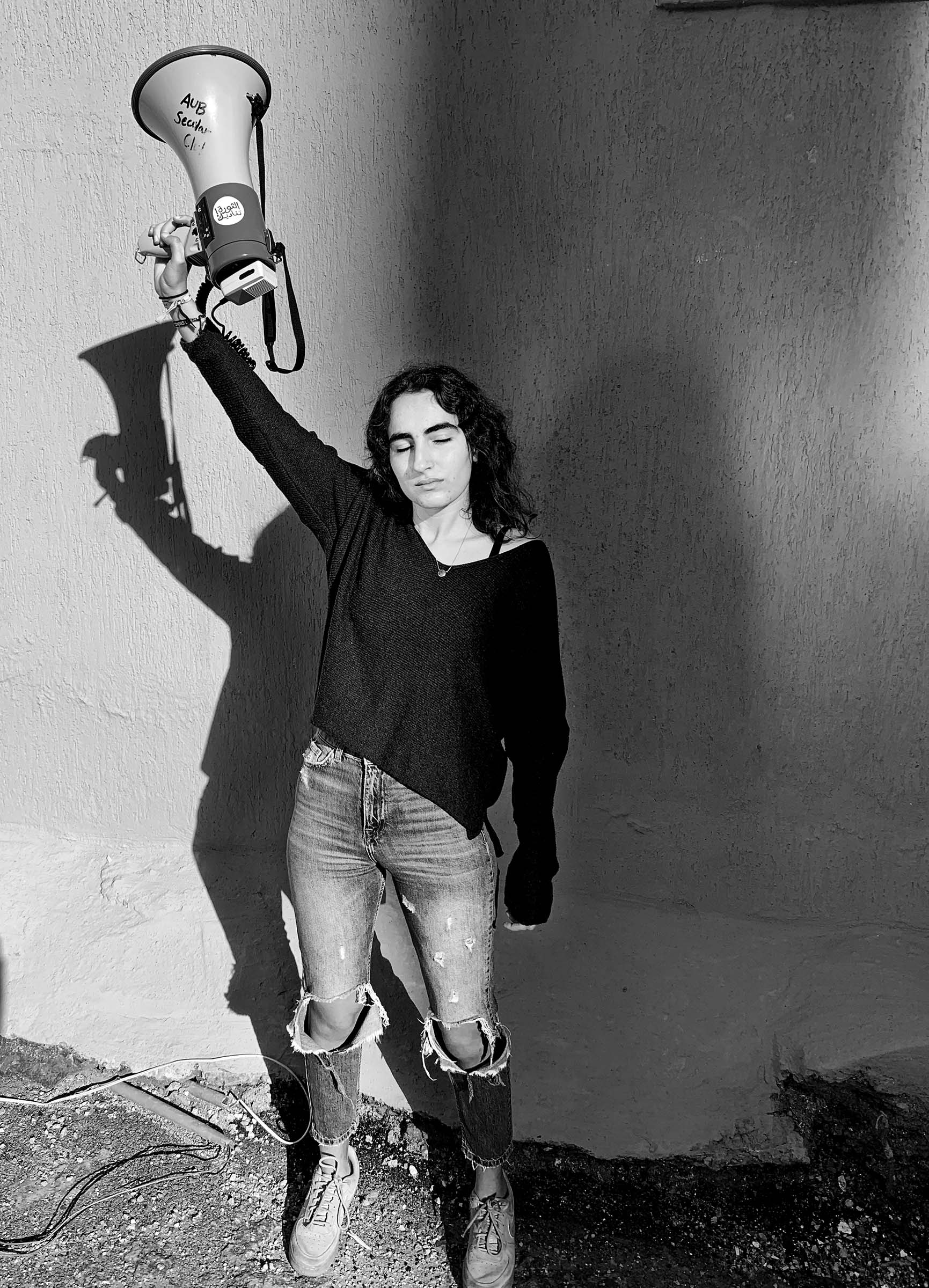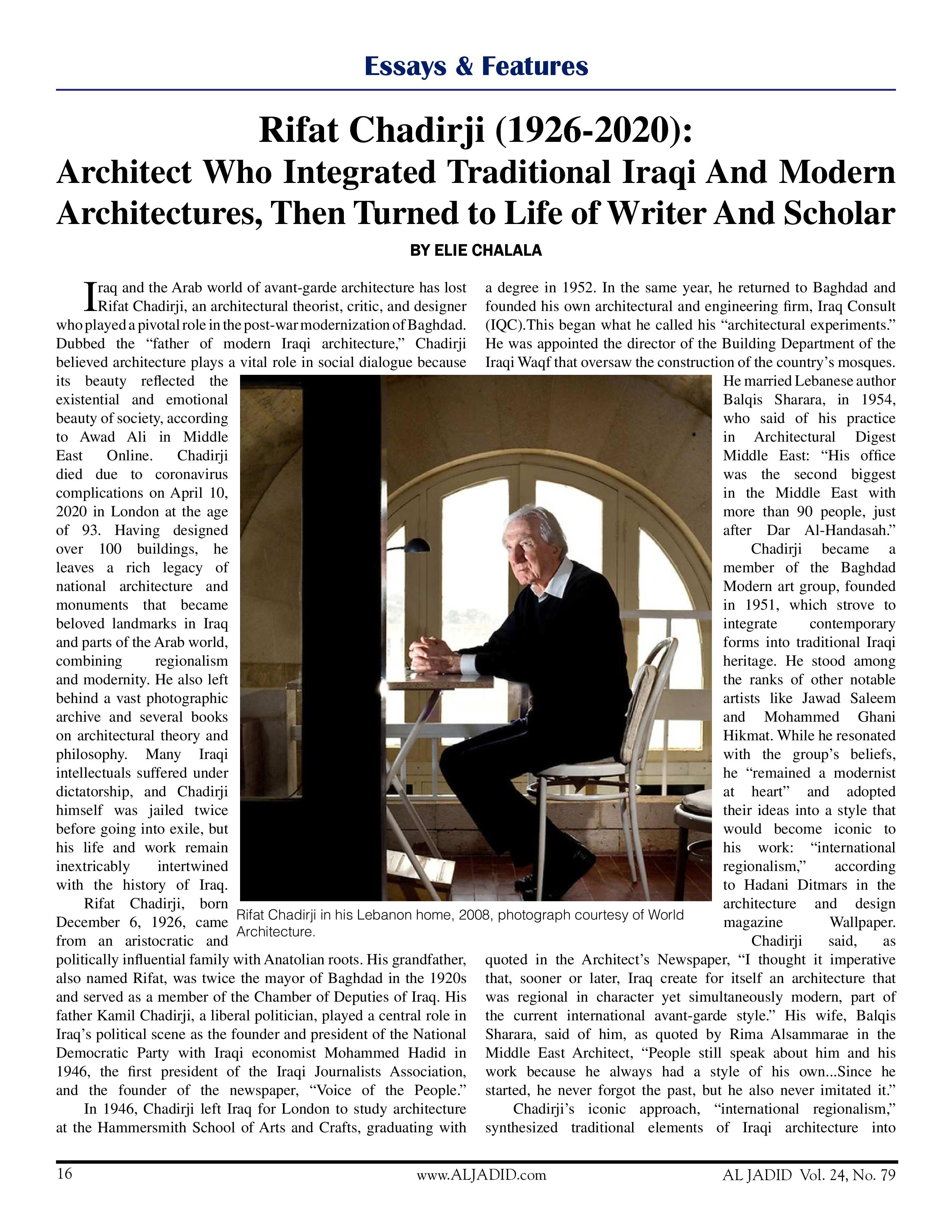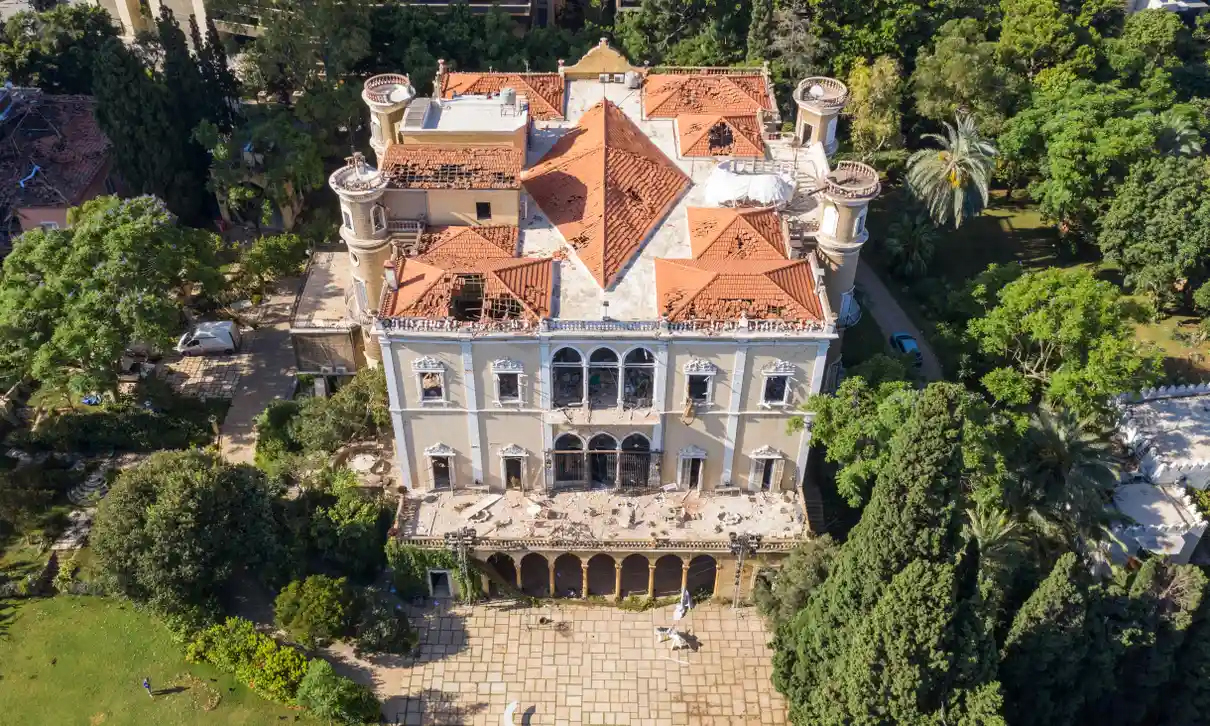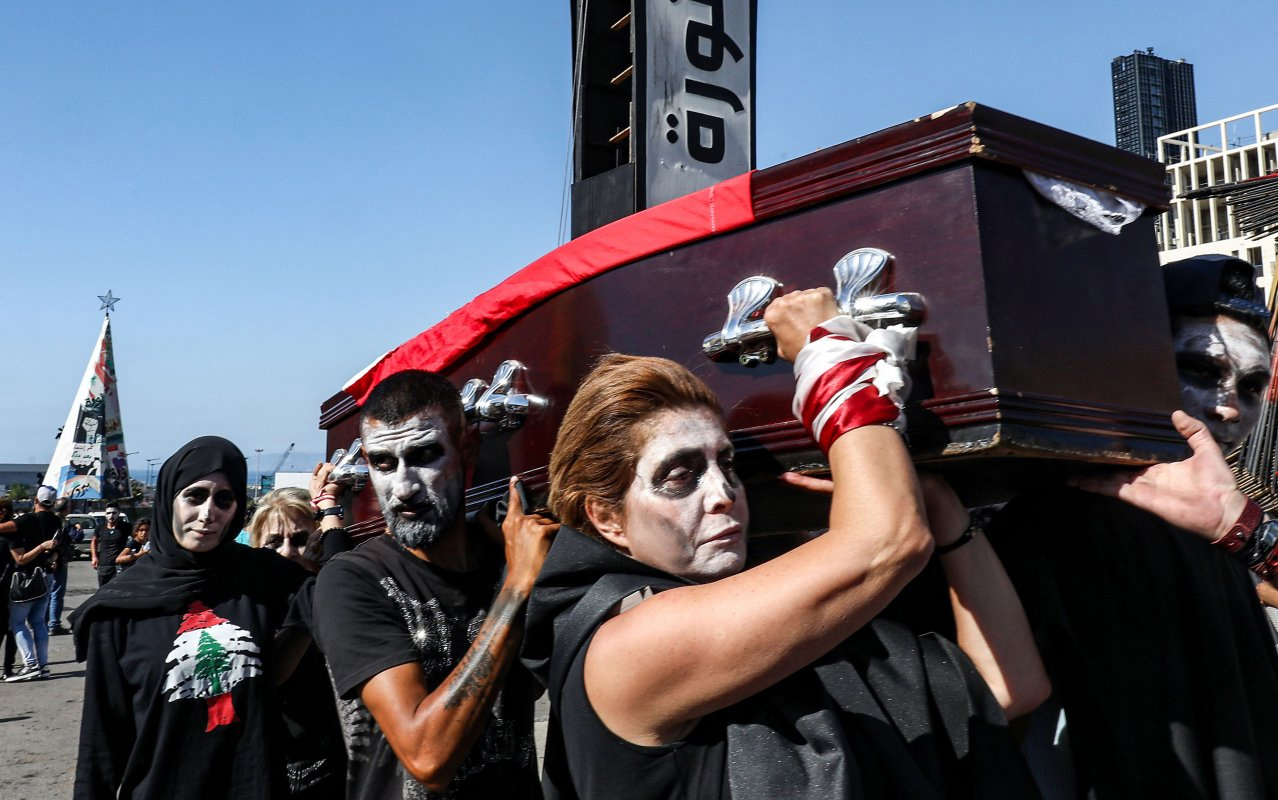Essays and Features
A Nation in an Expanding Mental Ward: Poet Abdo Wazen Asks if Lebanon Is Now in Chekhov's 'Ward No. Six'
Rose Antun: Recognizing the Contributions of Long Neglected ‘Shwam’ Feminist Journalist to Arab Nahda
ESSAYS & FEATURES IN FORTHCOMING AL JADID, VOL. 24, NO. 79, 2020
Rifat Chadirji (1926-2020): Architect Who Integrated Traditional Iraqi And Modern Architectures, Then Turned to Life of Writer and Scholar
Many Historic Buildings and Cultural Sites Destroyed in Beirut Explosion: Did the Blast Fatally Tear Lebanon’s Cultural Fabric?
The ‘Grand Compromise’ Between Lebanon’s ‘Strong Presidency’ and Iran’s 'Rejectionists' Hastens the Demise of Lebanon’s Economy
In early July, we wrote about two suicides in Lebanon while holding off on a third until we fact-checked it. Subsequently, the Beirut-based Al Modon newspaper wrote about a total of four suicides, including the two reported here. The article’s author deliberately stressed the reasons behind the suicides were not personal, but rather related to deteriorating economic conditions and the loss of dignity.
How Lebanon’s ‘State within a State’ Escalated Financial Disaster: Two Beirut Landmarks – AUB, and Le Bristol Hotel – the Latest Collateral Damage
ESSAYS IN FORTHCOMING AL JADID, VOL. 24, NO. 78, 2020
How Lebanon’s ‘State within a State’ Escalated Financial Disaster: Two Beirut Landmarks – AUB, and Le Bristol Hotel – the Latest Collateral Damage










